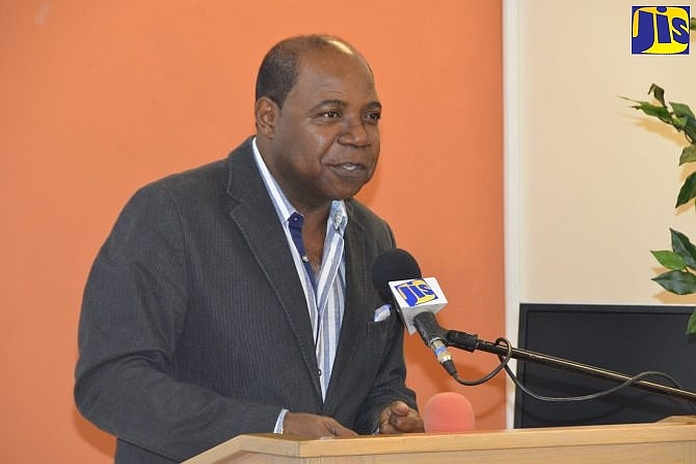By Garwin Davis
KINGSTON, Jamaica, (JIS) – There are some valuable lessons to learn from the coronavirus pandemic (COVID-19), which, if heeded, should make the world a better place, says minister of tourism, Edmund Bartlett, and in a podcast on Tourism Resilience and Recovery on March 27, said the COVID-19 pandemic has also reminded that, in spite of the lines of demarcation that are drawn up to separate ourselves in daily lives, such as class, wealth, zip code, job, religion, and nationality, there is ultimately one human race sharing the same vulnerabilities and locked into the same fight for its survival.
“This pandemic has indeed offered a very profound lesson in humility by showing us that, irrespective of development disparities and against the assumption of the supremacy of some countries, all countries have their moments of strength and weakness that will become self-evident at the right time,” the minister argued.
“In an ironic twist of fate, historically embattled and volatile states and regions have become safer grounds, even if only temporarily, in the fight against the COVID-19 pandemic than many countries that have become global symbols of power, control, and security,” he added, “the crisis has also “forced us” to quickly embrace the norms of the future digitalised economy in which business relationships and transactions will become increasingly mediated by digital technology.”
This new economic paradigm, he added, “will provide us” with an opportunity to discover new modes of functionality and productivity, “allowing us” to balance mobility with responsibility and will help to generate business models that are more resistant to future public health crises.
“Indeed, the adjustments we are now being forced to make, in terms of shifting to remote services and working remotely, will become the new normal underpinning the ethos of the public – and private-sector organisations in many countries in the post-COVID-19 era,” Bartlett said.
The minister said that facing isolation, reduced trade, reduced inbound travel and tourism and the possibility of economic recession due to the interconnectedness of the global economy, many countries have now been forced to discover new sources of competitive advantage and survival, which they are now locating within their national borders and which they have traditionally overlooked or underutilised.
Minister Bartlett is confident that the tourism industry will get back to full strength at some point, but devoid of some of its traditional norms and certainly not with a ‘business as usual’ approach.
“As we continue to fight this crisis together, we are reminded that we have been here before and like we overcame in the past, so shall we again,” the minister said. “How quickly we do so will depend significantly on the extent to which we, as citizens, are able to act selflessly and obey precautionary measures, on the one hand, while the State and the private sector must work collaboratively, on the other hand, to deploy resources and lead initiatives to encourage economic resilience as well as to help those who are suffering the greatest,” he said.
“We must also continue to observe regulations about public gatherings while desisting from circulating misinformation or fake news that can contribute to more panic and confusion,” he emphasised.
“Also, we must continue to sterilise infrastructure and public facilities, while supporting the Government’s efforts to allocate public funds to support the preservation of jobs in both the public and private sectors,” the minister said.
Meantime, the COVID-19 pandemic will easily be the game-changer of this millennium, never before has a pandemic so quickly and frighteningly rendered countries across the world so powerless and helpless in such a simultaneous and indiscriminate manner.
“Suddenly, all the advanced and seemingly impenetrable technological, scientific and military capabilities that some countries have developed to bolster self-defense and geopolitical supremacy have become useless against this indomitable invisible threat, appropriately called the great equaliser,” he noted.
Crises are always followed by opportunities, “we have to position ourselves to rebound from this global pandemic, which starts with the rebuilding of confidence,” Bartlett said.





